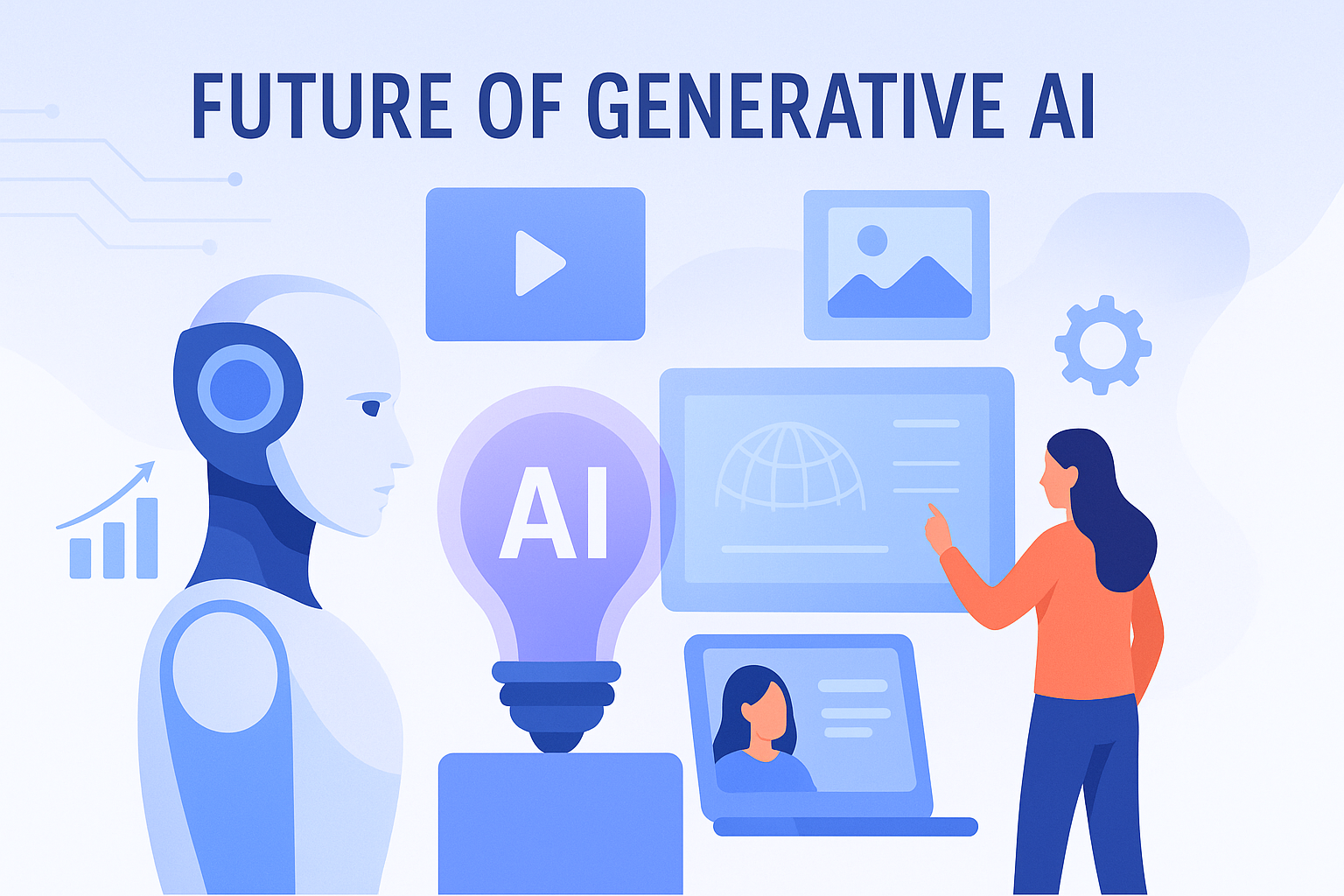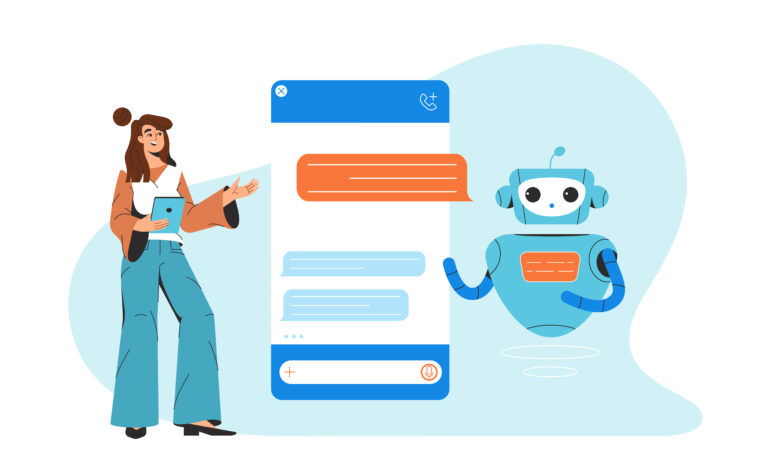Generative AI is no longer just a trend—it is transforming the way businesses, creators, and industries work. From writing human-like text to generating realistic images, music, and even code, generative AI has proven its potential. But what does the future hold for this technology?
1. Smarter and More Accurate Outputs
Today, one of the biggest challenges with generative AI is accuracy. Sometimes it produces incorrect or irrelevant information. In the future, models will become smarter, trained on higher-quality data, and better aligned with human needs. This will reduce errors and make AI-generated content more reliable.
2. Real-Time Personalized Experiences
Generative AI will power highly personalized experiences across industries. For example:
- E-commerce websites will show product descriptions and recommendations tailored to each visitor.
- Education platforms will generate personalized study materials for every student.
- Healthcare apps will create individualized treatment guides.
3. AI-Generated Video and 3D Worlds
While text and images are common today, the next frontier is video and 3D generation. Imagine creating entire movies, advertising campaigns, or virtual worlds within minutes. This will change entertainment, gaming, and marketing forever.
4. Fully Automated Workflows
Businesses will integrate generative AI into end-to-end workflows. Instead of just helping with content, AI will handle entire processes, such as:
- Writing, designing, and publishing marketing campaigns.
- Creating and testing software applications.
- Generating business reports and presentations.
5. Human-AI Collaboration
The future is not about AI replacing humans but working alongside them. Generative AI will act as a co-pilot, allowing humans to focus on creativity, decision-making, and strategy, while AI handles repetitive or large-scale content creation.
6. Ethical and Legal Frameworks
As generative AI grows, questions of ownership, bias, and authenticity will become more important. Future regulations will establish guidelines on who owns AI-generated content, how it can be used, and how to prevent misuse like deepfakes.
7. Industry-Specific Applications
Generative AI will expand into every sector:
- Retail: Virtual shopping assistants and personalized ads.
- Healthcare: Drug discovery and patient simulations.
- Education: Custom learning content.
- Finance: Automated reports and risk analysis.
- Entertainment: AI-generated music, films, and games.
Conclusion
The future of generative AI is not about replacing human intelligence but amplifying it. As technology advances, generative AI will move beyond content creation to become a true partner in innovation, business growth, and creativity. The challenge will be balancing innovation with responsibility, ensuring that this powerful tool benefits society as a whole.




